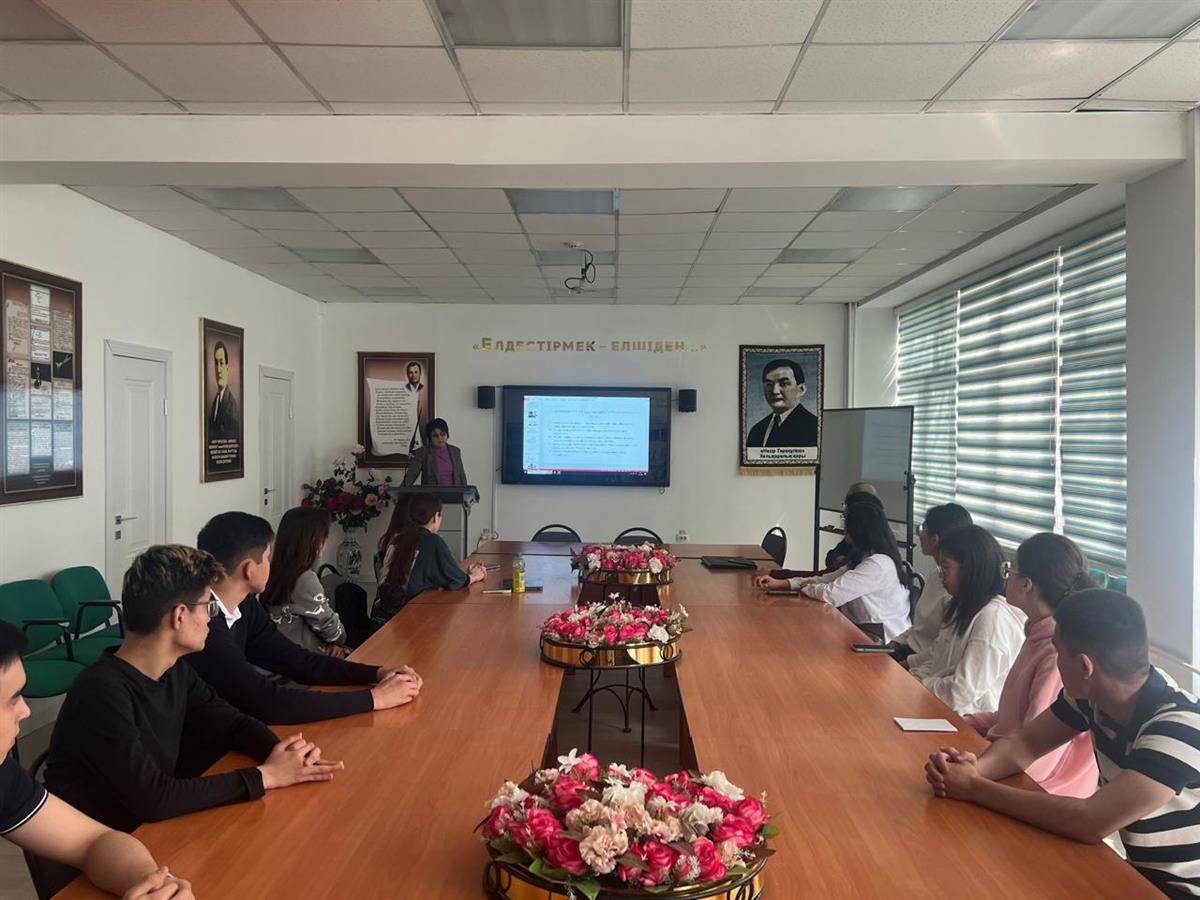Master class dedicated to the 90th anniversary of al-Farabi KazNU: within the framework of SDG 4 “Ensure inclusive and equitable quality of education and promote lifelong learning opportunities for all
Views: 108

On April 1-4, the Department of International Law of Al-Farabi KazNU held a master class on the topic: “Ensuring inclusive and equal quality of education and promoting lifelong learning opportunities for all.” The guest of the event was Muattara Rakhimova, Doctor of Law, Professor of the Department of International Law and Human Rights at Tashkent State Law University, who gave a lecture on international economic law.
Participants: students and graduate students of the educational program “International Law” of al-Farabi KazNU.
During the master class, it was noted that international economic law regulates interstate relations in the field of economic partnership and economic cooperation. However, at the same time, the scope and implementation of international economic law covers not only interstate relations, but also social relations with the participation of international organizations themselves; they undoubtedly play an important role in the adoption of international legal acts. The interpretation of international economic law within the framework of the academic discipline of international law presupposes the recognition as its norms only of the “classical” norms of public international law, which are currently contained and defined in the provisions of international treaties and customs.
Considering the implementation of economic cooperation and cooperation in the development of the global economy, it can be noted that international economic law includes public international law, including supranational integration law, internal law of states, that is, national legal systems and private law. All these structures jointly adopt a variety of bilateral and multilateral agreements in the field of ensuring economic cooperation, implementing joint economic and financial goals, ensuring stability and security in the economic sphere today.
Today, various international organizations are working to create new legal acts regulating international economic cooperation and partnership, and also take part in improving existing ones. In the conditions of modern integration, partnerships in international organizations are carried out to ensure global stability. Regulation of interim measures is carried out in the system of international economic law.
In the context of the development of modern international economic relations, the participation of countries in international organizations makes it possible to strengthen economic integration in matters of cooperation between countries. Countries coordinate efforts in the field of legal regulation within the framework of cooperation in international organizations.
At the master classes, current problems of international economic law, its functions in developing economic cooperation between states were discussed; in the practical part, cases on the practice of implementing regional economic cooperation in Central Asia were considered.
The students were keenly interested in the practice of the Republic of Uzbekistan on the initiative of developing economic cooperation between the countries of the region and improving legislation in this area.
Master's students received comprehensive answers to their questions. As true beginning researchers, the master's students asked prof. with interest. M. A. Rakhimov on the practice of implementing international treaties on the development of interstate cooperation.
At the end of the master classes, the master's students happily posed for a group photo with Professor M.A. Rakhimova.











